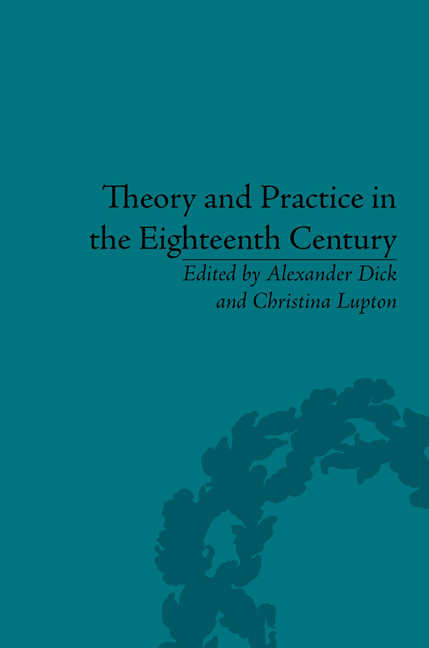Book contents
- Frontmatter
- CONTENTS
- Notes on Contributors
- Introduction
- I Writing Philosophy
- II Reading Hume
- 5 Preposterous Hume
- 6 Aesthetic Sensibility and the Contours of Sympathy Through Hume's Insertions to the Treatise
- 7 David Hume and Jane Austen on Pride: Ethics in the Enlightenment
- 8 Hume, Religion, Literary Form: Dialogues Concerning Natural Religion
- III Thinking Literature
- Notes
- Works Cited
- Index
5 - Preposterous Hume
from II - Reading Hume
- Frontmatter
- CONTENTS
- Notes on Contributors
- Introduction
- I Writing Philosophy
- II Reading Hume
- 5 Preposterous Hume
- 6 Aesthetic Sensibility and the Contours of Sympathy Through Hume's Insertions to the Treatise
- 7 David Hume and Jane Austen on Pride: Ethics in the Enlightenment
- 8 Hume, Religion, Literary Form: Dialogues Concerning Natural Religion
- III Thinking Literature
- Notes
- Works Cited
- Index
Summary
Ye haue another manner of disordered speach, when ye misplace your words or clauses and set that before which should be behind & è conuerso, we call it in English prouerbe, the cart before the horse, the Greeks call it Histeron proteron, we name it the Preposterous, and if it be not too much vsed is tollerable inough, and many times scarse perceiueable, vnlesse the sence be thereby made very abused. (George Puttenham, The Arte of English Poesie (1569))
‘You can scarce,’ said he, ‘combine two ideas together upon it, brother Toby, without an hypallage’ – What's that? cried my Uncle Toby. The cart before the horse, replied my father – (Laurence Sterne, The Life and Opinions of Tristram Shandy, Gent. (1760–5))
A quarter century ago, John Richetti published the most sustained literary analysis to date of Locke, Berkeley and Hume's major works, arguing that ‘Philosophical writing in this period is self-conscious about the difficult relationship between thought and the expository necessity whereby thought acquires style and becomes persuasive by extralogical or rhetorical means’. He distinguished Hume as ‘a rather more interesting writer than Berkeley or Locke’, one who ‘always conceived of his philosophy in literary terms and saw his problems as essentially rhetorical’. Thus, Richetti rendered Hume exemplary of a set of eighteenth-century thinkers whose work must be approached as philosophical writing rather than as philosophy tout court. Characterizing Hume's writing as ‘a distinct rhetorical enactment and a crucial supplement to his thought’, Richetti paid particular attention to the ways in which his ‘tightly controlled style’, with its ‘terse understatement, irony, mock concession, and … austerity of ornament’, often served as a counterweight to the enormity of his claims and the ‘extreme implications of his findings’, especially in the Treatise of Human Nature (1739–40)
Like Richetti, I am interested in the ‘larger, cumulative effects’ of Hume's prose and in its ‘operation and sequence’, particularly in the ways that complicated manipulations of serial order generate its curious accretive power.
- Type
- Chapter
- Information
- Theory and Practice in the Eighteenth CenturyWriting Between Philosophy and Literature, pp. 87 - 108Publisher: Pickering & ChattoFirst published in: 2014



